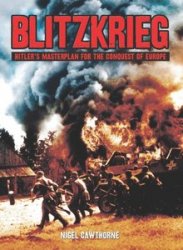Though Spener and Francke did not break officially from state-church Lutheranism, the pietest movement in Germany did lead to the creation of a new denomination, the Unity of Brethren, usually called the Moravians. Count Nicholas von Zinzendorf (1700-60), a German nobleman, studied at Halle, and later encountered a group of radical Protestants who had been forced to flee their homeland in Moravia - now part of the Czech Republic - by Catholic authorities. Zinzendorf gave them asylum at his estate in Herrnhut in Moravia, and later joined the group himself. Like the Quakers, the Moravians had distinctive dress and speech. Their hymns, writings, and ceremonies emphasized a mystical union with Christ, and were often very physical and sensuous, full of images of bathing in the wounds of Christ and even celebrating Christ’s penis as a symbol of his full humanity.
Zinzendorf had originally wanted the Herrnhut community to be simply a group within the Lutheran Church that encouraged deeper religious sensibilities, but they became instead a separate body. Zinzendorf was banished from Germany for more than ten years and traveled to England and America to set up Moravian congregations. (Bethlehem and Nazareth in Pennsylvania began as Moravian colonies, as did Salem in North Carolina.) Other Moravian missionaries traveled to Africa, India, the Caribbean, and South America; the small Moravian Church may have supplied half of the Protestant missionaries active in the world in the eighteenth century.
The strong faith of Moravian missionaries made a deep impact on a young English pastor, John Wesley (1703-91), on his way to Georgia to preach to colonists and Native Americans. Wesley’s father, Samuel, was a minister in the Church of England, and his mother, Susanna, provided religious and moral teachings to all of her nineteen children. Wesley attended Oxford, where he and his brother Charles formed a religious group that read the Bible for several hours each day, took communion frequently,
Visited prisons and the poor, and pledged to live a moral life. They were ridiculed by other students as a “holy club” or as “Methodists” who proposed a method of achieving sanctification and spiritual perfection.
Wesley was ordained, and decided to go to America; while on shipboard he met a group of Moravians, who showed great courage by singing hymns through a violent storm. Wesley was completely unsuccessful in Georgia; his white congregation hated him, and Native Americans were not the noble savages he had expected them to be. He came to doubt his own faith, and returned to England bitter and uncertain. There he worshipped with a small group of Moravians, and had a conversion experience in which his “heart [was] strangely warmed” with “trust in Christ.”
Wesley joined George Whitefield (1714-70), a former member of his “holy club” at Oxford, preaching in the open to large crowds of people, especially in the growing factory and mining towns that often lacked churches or schools. They often preached three or four sermons a day, to which people responded by crying, moaning, and shouting. In some cases sermons led to riots, sometimes instigated by thugs paid by local Anglican ministers or landowners; Wesley, a small man, became known for his physical courage and absolute fearlessness. He and Whitefield separated because of theological and personal differences, but the movement grew, and lay people as well as ordained ministers began to preach. Wesley originally opposed this, but slowly accepted lay preachers as necessary in this time of deep spiritual need. He organized his followers into small groups called “classes” for weekly meetings led by lay leaders; a group of classes formed a “circuit” led by a superintendent, and circuits met together in an annual conference. This structure gave leadership opportunities to quite ordinary people, including women, and also kept members in line, as they had to give an account of their journey toward perfect Christian love to the group each week.




 World History
World History









